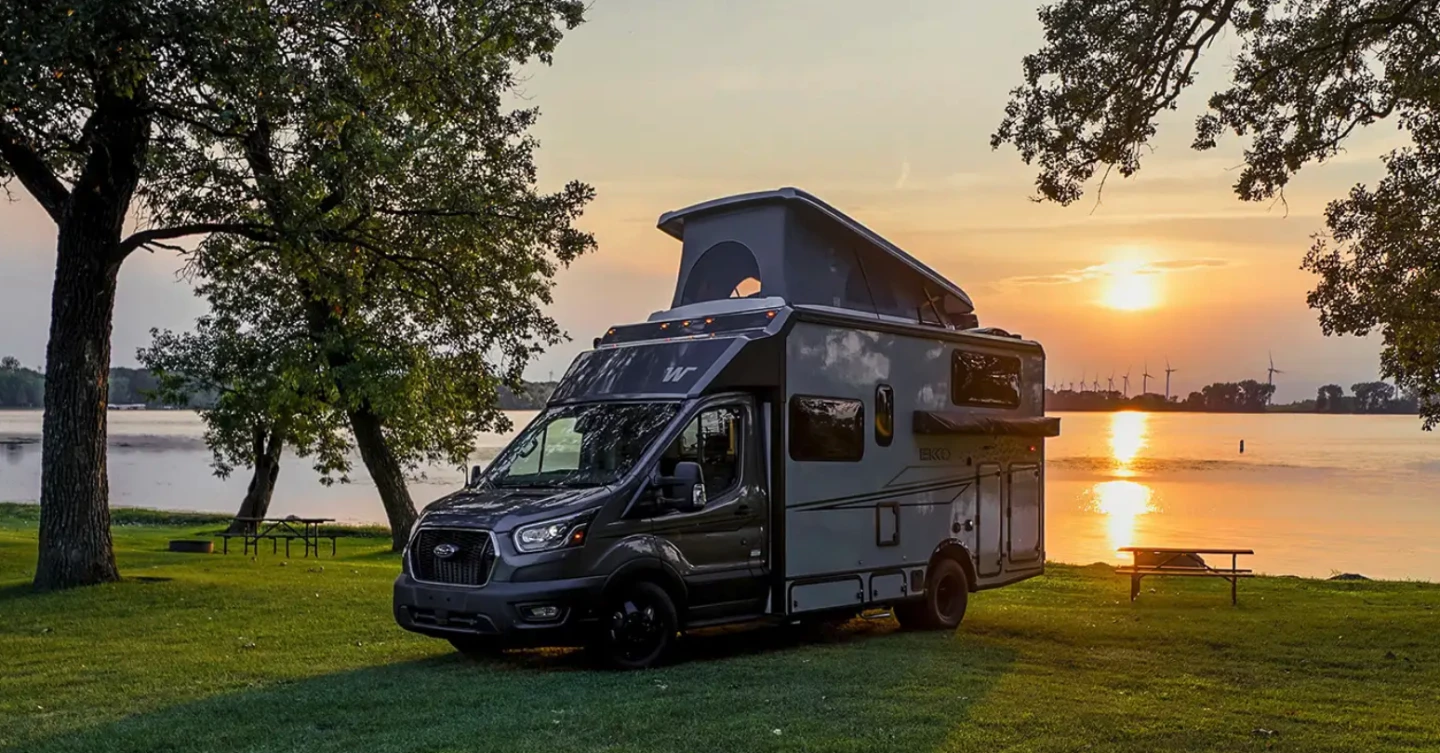We're only two weeks into 2022, and it's already been a milestone year for electric campers. Winnebago has followed Mercedes-Benz and Thor Industries in announcing plans to show an all-electric camper. Set to debut in just a few days, the Winnebago e-motorhome concept could become the US' first all-electric motorhome from a major manufacturer, assuming it matures from concept to production.
Winnebago explains that the forthcoming electric motorhome concept has been developed by the company's Advanced Technology Group (ATG) over the course of two years. ATG was established within Winnebago Industries in 2019, tasked with identifying and developing emerging technologies for use in the company's products and services. The 2022 electric motorhome concept will be the first public-facing example of its work, Winnebago says.
That's about all the vehicle detail Winnebago gives for now, inviting a few days' worth of speculation as to what type of motorhome it will be. The most obvious choice would be a camper van (Class B motorhome) because that would be smaller, lighter and easier on driving range than a larger Class A or C motorhome. The grille, headlight and bumper lines of the front-end Winnebago teased above line up with the Ford Transit, a van that currently features in the Winnebago Ekko Class B+/C motorhome and has featured in past Winnebago camper vans.

Ford announced in November that it had begun sending out pre-production versions of its 126-mile (202-km) E-Transit to American commercial customers. The pilot program was designed for the companies to test operations within their fleets. While it would seem outside the stated scope of that program, perhaps Winnebago received one of those early examples and made quick work of developing it out into a camper concept.
It's also possible Winnebago's concept is based on an ICE Transit converted to electric drive by an aftermarket company, such as Colorado's Lightning eMotors. That would line up better with the two-year development cycle and could help Winnebago sweeten the spec sheet. Lightning boasts about a few advantages its aftermarket builds offer over Ford's official E-Transit, and not least among those are range options of 140 and 170 miles (225 and 273 km), extra distance that would be very helpful in a motorhome. The higher gross vehicle weight rating (GVWR) of Lightning's kit would be another major advantage for a motorhome.

Winnebago Industries has already gone the route of working with a third-party electric Ford chassis converter. In 2018, it announced its Specialty Vehicles Division's work with Motiv Power Systems in creating electric Class A-style commercial vehicles. Those vehicles have since found use for purposes like urban mobile healthcare and learning. Motiv advertises Electric Power Intelligent Chassis (EPIC) products based on several Ford chassis, but not the Transit.
We'll save our time and yours on any further speculation because we'll know all about the Winnebago electric concept motorhome in fewer than four days. Winnebago will host a Facebook Live reveal at 2 p.m. on Tuesday, January 18, the industry day of the Florida RV SuperShow. The Tampa-based show opens to the public on Wednesday, January 19 and runs through Sunday, January 23.
We'll have more details about the all-electric concept Winnebago when it makes its official debut.
Source: Winnebago







